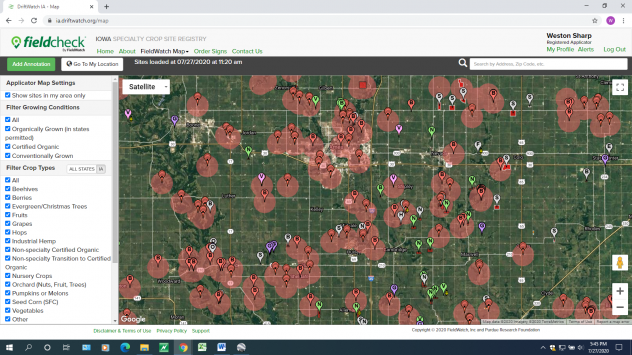Do you ever get an email in your inbox and think: “Who the heck wrote this, and what were they thinking? How did this person get hired to write this copy, and how did this get approved by their team?”
Below is the email screenshot from a company called BeeProtected regarding its services. Oh boy, here we go. This is why I drink.
Get a load of this “BEE.”S. (B.S. )

Uhm … what … is this a joke? “Low level of professionalism?” Treating farmers like they don’t know how to do their jobs? Excuse me, Mr. Mass Produced Email Blast, who clearly didn’t know who you were sending this to, the only “low level of professionalism” I see is an insulting email with no citations of claims, while using language that would never be used in agriculture in the first place.
“Drugs?” “Poisons?” This what you’re accusing farmers of doing, but yet you want to work with us?
Yeah … sorry. That’s not gonna fly. It’s probably not a good idea to insult your potential customers and partners. And for the record, no one in agriculture would use “drug and poison” to describe what we do. Pesticide? Sure. Crop protection product? Most likely. And what BeeProtected is trying to do already exists — from FieldWatch, a credible non-for-profit platform with solid members that is professional and respectful to farmers, the environment, and apiaries alike.
Speaking of “fly,” a lot of products farmers spray on their crops are applied by trained, licensed professionals like ag pilots. To further weigh in, I spoke to Wes Sharp, Vice President of the Iowa Agricultural Aviation Association, who explained the “Bee Law,” which his Dad actually helped write. The law, partnered with FieldWatch, is a regulation that has been successful in this arena to help protect bees and fields alike. It’s basically a communication requirement for beekeepers to register their hives and for farmers to give notice if they’re about to spray anything that could potentially harm their bees. In that instance, insecticide cannot be sprayed on blooming crops between 8 a.m. and 6 p.m., while the insects are foraging. For Sharp, he has a three-hour window each day to spray these products — in the very early morning or late evening. It works for everyone.
He explains that during the busy season as a professional pesticide applicator, he uses this website on a daily basis to get the job done. This is an example of how the site looks, which is a guide to know where the bees are located so he can protect them as best he can.
Read more on this story at Ag Daily.







